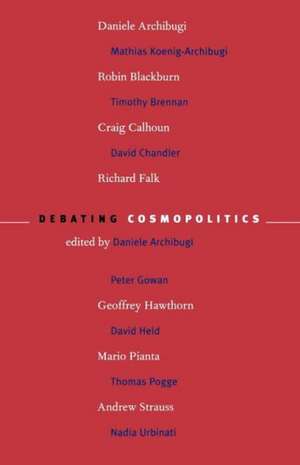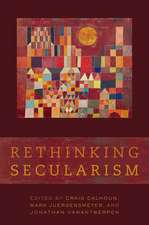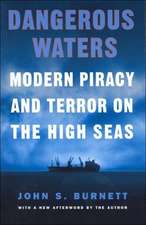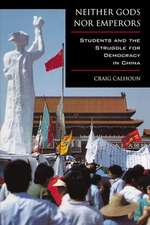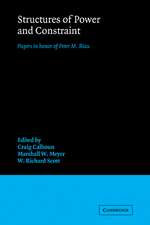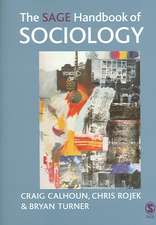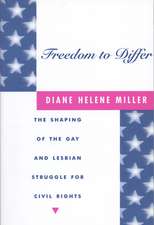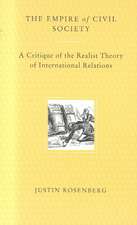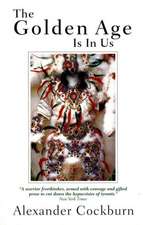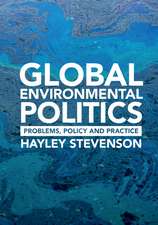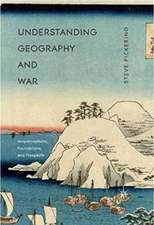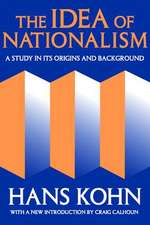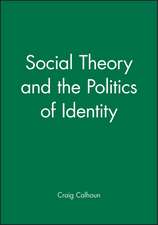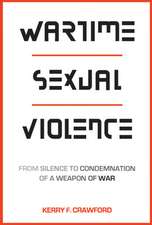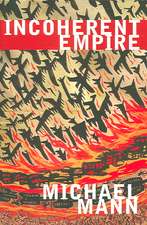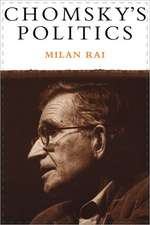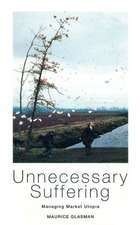Debating Cosmopolitics: New Left Review Debates
Editat de Daniele Archibugi Mathias Koenig-Archibugi, Craig Calhounen Limba Engleză Paperback – 30 iun 2003
What is needed, the writers suggest, is a deliberate decision to extend the principles and values of democracy to the sphere of international relations. Recent experience does not bode well, but their arguments, which range from reform of the United Nations, reduction of military weapons, additional power for international judiciary institutions and an increase in aid to developing countries, urge new and inspired action.
Preț: 169.69 lei
Nou
Puncte Express: 255
Preț estimativ în valută:
32.47€ • 33.78$ • 26.81£
32.47€ • 33.78$ • 26.81£
Carte disponibilă
Livrare economică 24 martie-07 aprilie
Preluare comenzi: 021 569.72.76
Specificații
ISBN-13: 9781859844373
ISBN-10: 1859844375
Pagini: 310
Dimensiuni: 136 x 215 x 25 mm
Greutate: 0.4 kg
Editura: VERSO
Seria New Left Review Debates
Locul publicării:United Kingdom
ISBN-10: 1859844375
Pagini: 310
Dimensiuni: 136 x 215 x 25 mm
Greutate: 0.4 kg
Editura: VERSO
Seria New Left Review Debates
Locul publicării:United Kingdom
Notă biografică
Daniele Archibugi is a director at the Italian National Research Council. He is the author of, among other works, Cosmopolitan Democracy: An Agenda for a New World Order and Global Democracy, a special issue of Peace Review.
Robin Blackburn teaches at the New School in New York and the University of Essex in the UK. He is the author of many books, including The Making of New World Slavery, The Overthrow of Colonial Slavery, Age Shock, Banking on Death, and The American Crucible.
Timothy Brennan is professor of comparative literature, cultural studies, and English at the University of Minnesota. His books include At Home in the World: Cosmopolitanism Now and, most recently, Wars of Position: The Cultural Politics of the Left and Right. He writes for a number of journals, including New Left Review and The Nation.
Richard Falk was Professor of International Law Emeritus at Princeton University and since 2002 is Visiting Professor of Global Studies at the University of California, Santa Barbara.
Peter Gowan (1946–2009) taught international relations for many years at London Metropolitan University. He was the author of The Global Gamble and A Calculus of Power, co-editor of The Question of Europe, cofounder of the journal Labour Focus on Eastern Europe, and a longstanding member of the editorial board of New Left Review—who published <a href="http://www.newleftreview.org/?view=2803">an interview with Peter Gowan</a> along with <a href="http://www.newleftreview.org/?view=2801">an obituary</a> in Sept–Oct 2009.
Robin Blackburn teaches at the New School in New York and the University of Essex in the UK. He is the author of many books, including The Making of New World Slavery, The Overthrow of Colonial Slavery, Age Shock, Banking on Death, and The American Crucible.
Timothy Brennan is professor of comparative literature, cultural studies, and English at the University of Minnesota. His books include At Home in the World: Cosmopolitanism Now and, most recently, Wars of Position: The Cultural Politics of the Left and Right. He writes for a number of journals, including New Left Review and The Nation.
Richard Falk was Professor of International Law Emeritus at Princeton University and since 2002 is Visiting Professor of Global Studies at the University of California, Santa Barbara.
Peter Gowan (1946–2009) taught international relations for many years at London Metropolitan University. He was the author of The Global Gamble and A Calculus of Power, co-editor of The Question of Europe, cofounder of the journal Labour Focus on Eastern Europe, and a longstanding member of the editorial board of New Left Review—who published <a href="http://www.newleftreview.org/?view=2803">an interview with Peter Gowan</a> along with <a href="http://www.newleftreview.org/?view=2801">an obituary</a> in Sept–Oct 2009.
Descriere
Cosmopolitics, the concepts of a world politics based on shared democratic values, is in an increasingly fragile state. What is needed, the writers here suggest, is a deliberate decision to extend the principles and values of democracy to the sphere of international relations.
